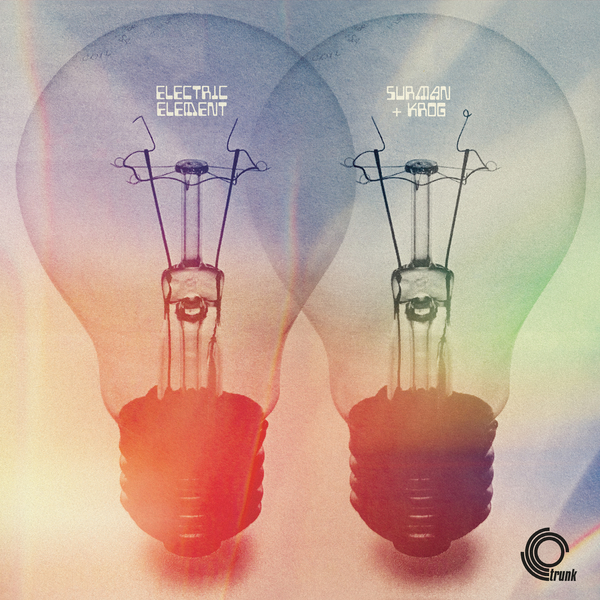There’s an ineffable sense of mystery to this collection of previously unreleased material from saxophonist John Surman and jazz vocalist Karin Krog. Recorded over three days in 2013, abandoned when the theatre project it was commissioned for never came to fruition, and finally unearthed this month by Trunk Records, Electric Element sees the duo (along with Surman’s son Ben) abandon traditional jazz entirely in favour of a set of wonderfully weird vocal and electronic experiments.
Over nine tracks – five substantial compositions and four brief interstitials, which mainly act as codas to the longer pieces – Surman shirks his sax in favour of wind synth, bass and contrabass clarinet, plus various effects units. Krog, for her part, shrieks, growls, mutters, and occasionally speaks. It’s an extraordinarily visceral performance and while it’s not unusual for the singer to manipulate her voice via both natural and technological means (see also her perfectly named Light in the Attic compilation, Don’t Just Sing) she’s an unusually spectral and occasionally even threatening presence here.
‘Mutual Capacitance’ opens the album with a plaintive wail echoing out across a landscape of clockwork percussion and snarling guitar. It’s broodingly atmospheric, the guitar skirting the edges of prog rock, but held in check by insistent patches of piano. The oppressive mood continues into the slight ‘R (2)’, where the ghostly after-images of percussion hits and piano notes float on an ocean of reverb.
There’s a whiff of the New Age bookshop about album highlight ‘Electrostatic Coupling’, with its glittering synths and Krog’s alternately guttural and angelic vocalisations. I’m reminded of two great electronic tracks here: the kosmiche sound of Coil’s ‘Red Birds Will Fly Out of the East and Destroy Paris in a Night’ and the cut-up vocal stutter of Boards of Canada’s ‘Telephasic Workshop’, with Krog’s chopped and looped voice providing the percussive spine for much of the track.
The lengthy, ten-minute ‘Propagation Delay’ has a similarly mystical quality, as it subtly transitions from Eraserhead factory rumbles to serene meditation music ambience, while ‘Inductive Crosstalk’ provides the album with its most unnerving moment. Opening with indistinct snippets of chatter – as if we’ve accidentally caught Krog in absent-minded conversation with herself on mic – mournful piano and synth melodies build in the background until the now foregrounded Krog embarks on a lengthy, though cryptic narration through a ring modulator (best known as the device that creates the voice of the Daleks in Doctor Who). Even without knowing the language being spoken here, there’s a precision and command of tone in Krog’s reading that feels eldritch and sinister.
For the first few days listening to Electric Element, I had absolutely no idea when or why this fascinating album was made, with the Trunk website offering few clues. It sounds both rooted in 2000s electronic music, while also being reminiscent of much older artists like Tangerine Dream, Basil Kirchin, and Throbbing Gristle. The only real giveaway that these are comparatively modern compositions comes with the final track, ‘Compression Slice’ – a glitchy, dub-tinged cut reminiscent of Autechre’s deconstructed hip-hop. Krog is barely audible here, the odd mangled plosive aside, her voice is almost entirely subsumed in the crunching beats and jittery synths. On an enigmatic time slip of a record that seems to dance between the past and the present, it’s apt and satisfying that the final track sounds so proudly futuristic.


